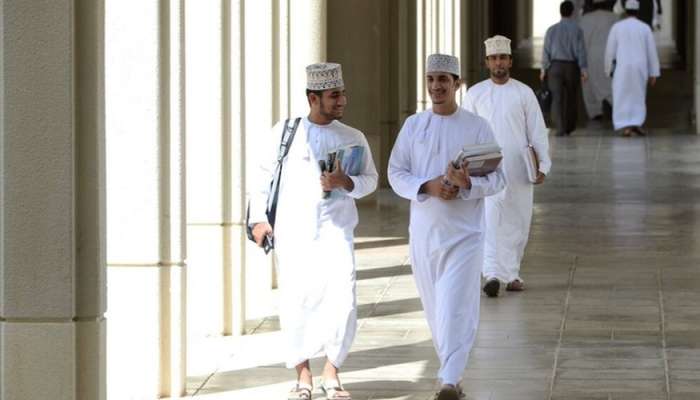Muscat: The preference modification phase for registration and admission for the 2025/2026 academic year will begin tomorrow ‘Tuesday’ and continue until Thursday 31 July.
The results of the initial sorting will be announced on the evening of Tuesday, 19 August, while accepted students will have the opportunity to complete their procedures starting from Tuesday, 19 August until noon on Sunday 24 August.
Ahmed Mohammed Al Azri, Director General of the Higher Education Admission Centre (HEAC) at the Ministry of Higher Education, Research and Innovation, stated that the number of available seats received from government higher education institutions, domestic scholarships, private sector grants for private higher education institutions, and external scholarships and grants from Arab countries for the 2025/2026 academic year has reached 29,252 seats.
Of these, 16,884 seats are in various government higher education institutions, 607 are for external scholarships and grants, while the number of domestic scholarships and grants for study at private universities and colleges in the Sultanate of Oman stands at 11,761.
He added that the preference modification phase is one of the most critical stages of registration, allowing students to finalize their program choices in the system for the initial sorting competition. He noted that the updates this year focus on two main aspects, namely admission procedures and academic programs.
Regarding admission procedures, the center will launch this year a self-funded admission system, regulating student admissions at Sultan Qaboos University on a self-financed basis, in addition to educational specialization programs at private higher education institutions within Oman (Sohar University, Nizwa University, Dhofar University, and the University of Al Sharqiyah).
The center has issued a student guide detailing all information related to this system, coinciding with the preference modification phase. Registration under this system will open after the initial sorting.
Additionally, he noted that updates to the Unified Admission System include the launch of a complaint submission service on the Unified Government Services Portal, reinforcing government efforts to facilitate access to e-services and streamline transactions through a single platform.
As for academic program updates, he pointed out that higher education institutions (scholarship providers) have aligned programs with labour market demands. New domestic scholarship programs for bachelor’s degrees include Emergency Medical Services Science, Environmental Management and Practices, and Human Medicine at Dhofar University.
Domestic scholarships have also been introduced for students with learning difficulties to study at private higher education institutions.
Al Azri further added that new external scholarships have been introduced for specializations overseen by the External Scholarships Department at the Ministry of Higher Education, Research and Innovation, such as Healthcare, Health Planning, Health Risk Management, Therapeutic Nutrition, Law, and Actuarial Studies.
He said that the ministry, represented by the Domestic Scholarships Department, has also directed scholarships toward high-demand specializations in the labour market, including Process Engineering, Production Operations, Occupational Health and Safety, Welding, Mining, Renewable Energy, Quality Control Management, Tourism and Hospitality Management, and Legal Assistant Studies. Additionally, new professional diploma scholarships for Air Transport Pilot Licenses have been introduced at the Oman Aviation Academy.
He noted that government higher education institutions have expanded their programs and specializations. The Military Technological College has increased its capacity this year, opening admissions for female students alongside males in various engineering disciplines (bearing in mind that these are not coupled with employment).
The University of Technology and Applied Sciences (UTAS) has added a new engineering specialization at its branch in Musandam Governorate. The university has also introduced a an advantage for social security family students, allowing them to apply without allocated seats in engineering programs; upon acceptance, they may choose the nearest branch of the university to their residence.
He explained that the Higher Education Admission Centre had earlier announced the trial sorting results this month, noting some common errors among applicants. Al Azri emphasized that students can avoid these issues, which negatively impact their admission chances—particularly high-achieving students.
The trial sorting results showed that 1,936 students with an 80% grade or higher did not receive a preliminary program offer. 76% of them had listed too few preferences, focusing on highly competitive, limited specializations.
Additionally, 247 students with a 90% grade or higher did not receive a preliminary offer, with 84% of them listing fewer than 30 preferences. This highlights the need for students to include more program options and diversify their choices across institutions and disciplines.
In conclusion, Al Azri urged students to maximize their program selections (meeting admission requirements) and prioritize them by preference to enhance their chances of securing a seat. He also stressed the importance of diversifying choices across institutions and specializations and encouraged following the center’s website for updates on registration and admission stages.
